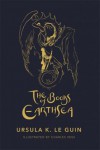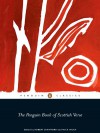Arbie's Unoriginally Titled Book Blog
It's a blog! Mainly of book reviews.
Currently reading
Connections, James Burke

This book is the "companion" to a BBC TV series first broadcast in the '70s or early '80s. I found it interesting enough but intellectually weak. It purports to trace the history of development of various "modern" inventions, such as the jet engine, the computer and television, starting with the invention of agriculture. Where we arrive at the first problem; farming allowed the first division of labour into different, specialised occupations, which in turn, allowed the development of technology. Hunter-gatherers couldn't do this.
WRONG! It's abundantly clear that there was/is division of labour between sexes in hunter-gatherer societies and that priest/shaman roles were separate from warrior/hunter roles and that some individuals specialised in specific types of tool manufacture in some cases.
The next problem: having moved on to the next chapter and a new modern invention to trace the origins of, we should be back at the farming thing again - but we aren't. So does Burke believe that farming is the origin of all modern technology or not?
Then there's the "individuals don't matter" theory of history, which is contradicted by example almost immediately after its first presentation. Burke states that Harold's Saxons were doomed to lose the Battle of Hastings because the Normans had cavalry using stirrups which allowed lance charges. Then he says these were ineffective against the Saxons on the high ground...then he says Harold left the high ground and the Saxons got slaughtered...well what if Harold had stayed on the hill? That was one man's decision. But individuals don't affect history...
Then there's the lack of scientists. Almost everybody in this book was an engineer. But nobody would have television, digital computers, nuclear weapons etc. without hundreds or thousands of people doing pure science. Even the most important chemists and physicists are neglected.
The fact is, imposing an kind of narrative on history involves neglecting and selecting. If you want to play down the role of monarchs and presidents, you can - but this book shows how much technological development has been in the cause of military might - and who chooses when we go to war?
 5
5










